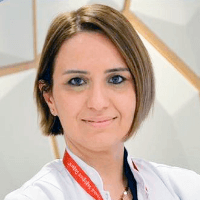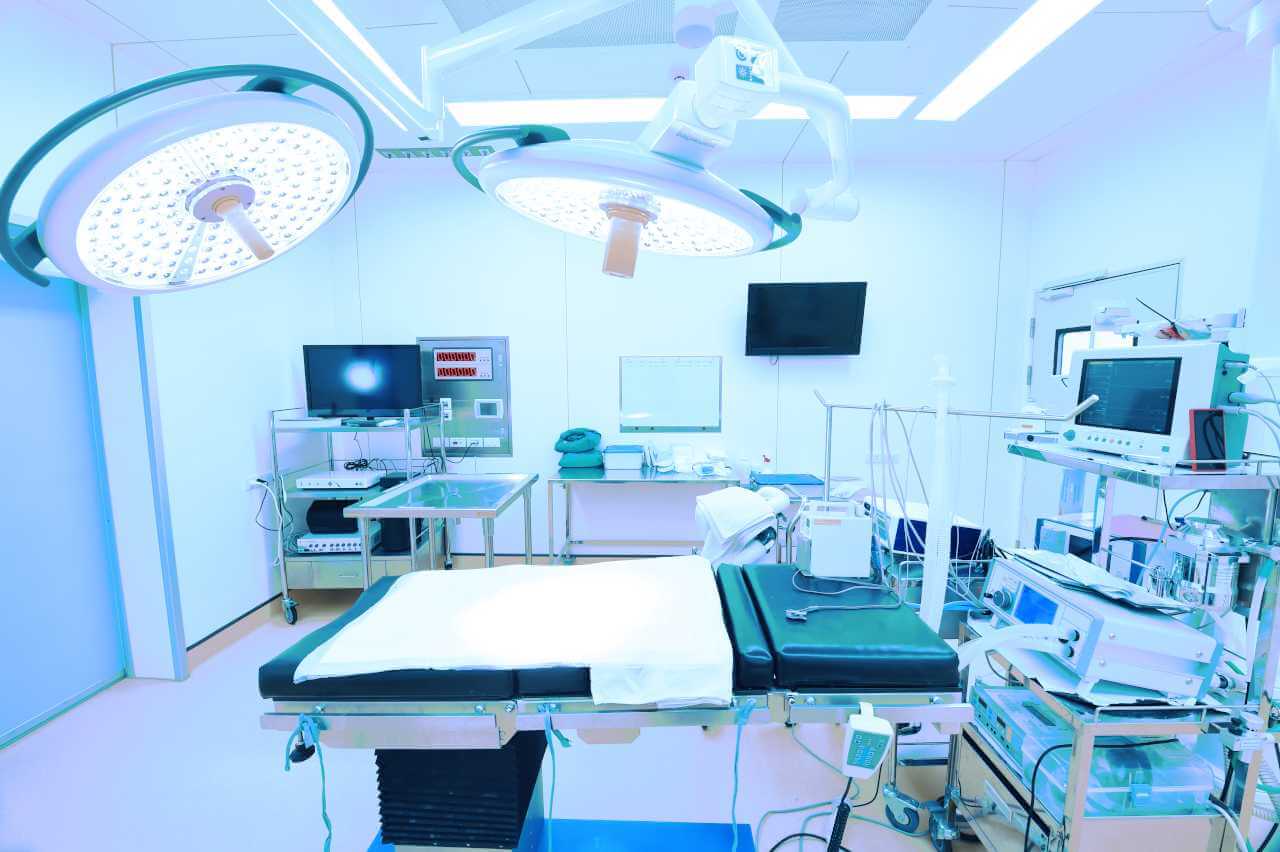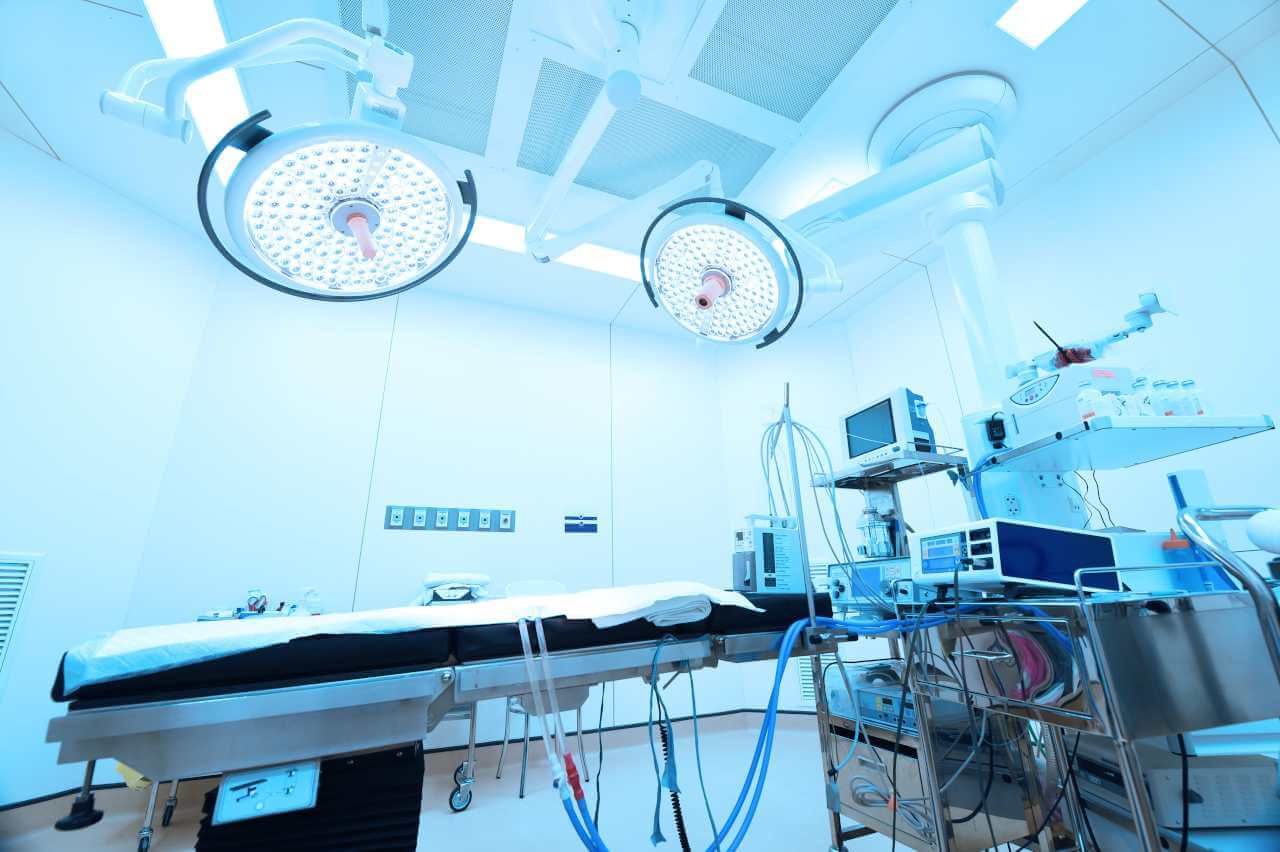
The program includes:
- Initial presentation in the clinic
- case history collection
- general clinical examination
- laboratory tests:
- complete blood count
- biochemical analysis of blood
- TSH-basal, fT3, fT4
- differential blood count
- inflammation indicators (CRP, ESR)
- indicators of blood coagulation
- abdominal ultrasound scan
- CT/MRI scans of the whole body
- needle biopsy of the bone marrow with histological:
- cytochemistry
- immunocytology
- cytogenetics (Philadelphia
chromosome detection) - molecular biology
- biopsy and histological examination of CSF
- examination by experts of:
- cardiology
- otolaryngology
- immunology
- ophthalmology
- registration in the European bone marrow donor base
- conducting high-dose chemotherapy
- allogeneic bone marrow transplantation from
unrelated donor - isolation by neutropenic precautions
- symptomatic treatment
- control examinations
- the cost of essential medicines and materials
- nursing services
- full hospital accommodation
- explanation of future recommendations
How program is carried out
During the first visit, the doctor will conduct a clinical examination and go through the results of the available diagnostic tests. After that, you will undergo the necessary additional examination, such as the assessment of liver and kidney function, ultrasound scan, CT scan and MRI.
Also, the doctor will conduct a bone marrow biopsy followed by cytological examination of the harvested material. This will help him to determine the histological features of your bone marrow (in particular, identify HLA system antigens) and select a suitable donor. The donor can be a family member or a person from the bone marrow registry. In the second case, the donor material is stored in a bone marrow bank.
Before the procedure, you will receive chemotherapy, if necessary in combination with radiation therapy. The course of chemo- or chemoradiation therapy lasts from 2 to 8 days.
The bone marrow transplant procedure is an intravenous infusion, i.e. the healthy bone marrow will be injected through a catheter, intravenously. You will stay in your room during the procedure. A bone marrow transplant is completely painless and does not require anesthesia.
During the period of healthy bone marrow engraftment, you will stay in a sterile ward. This is a necessary precaution because during this time your immune system is very weak and cannot withstand environmental pathogens. The risk of bleeding is also quite high, so you will be advised to avoid mechanical damage.
A relative or other close person may stay in the ward with you. You will not be allowed to go outside the department and leave your ward often. The rehabilitation period can last from 1 to 2 months.
When your complete blood count returns to normal, your doctor will schedule your discharge from the department. You will receive information about the rules that you will need to follow at home, the frequency and type of control examinations, and subsequent treatment measures. You will also receive a detailed medical report, which will reflect the entire course of treatment.
Required documents
- Medical records
- MRI/CT scan (not older than 3 months)
- Bone marrow biopsy results (if available)
Service
You may also book:
 BookingHealth Price from:
BookingHealth Price from:
About the department
The Department of Pediatric Hematology, Oncology and Bone Marrow Transplantation at the Memorial Bahçelievler Hospital Istanbul offers high-precision diagnostics and effective treatment of the full range of blood diseases and cancers in children of all age groups. The department also successfully performs bone marrow transplantation, which is one of the most effective treatment methods for hematopoietic cancer. To provide comprehensive medical care for young patients with cancer, the department's specialists cooperate closely with doctors of other specialties, including pediatric surgeons, orthopedists, neurosurgeons, ophthalmologists, otolaryngologists, etc. The progressive medical and technical base, as well as high professionalism of the department's doctors, make it possible to accurately diagnose pathological processes in the child's body, and achieve a complete cancer cure or long-term remission, even in complex clinical cases. The Chief Physician of the department is Prof. Dr. med. Muge Gokce.
The department's specialists most often treat such pathologies as leukemia, brain tumors, lymphomas, kidney and adrenal tumors, soft tissue and bone tumors, eye tumors (especially retinoblastoma). For the treatment of malignant diseases in children, the same methods are used as in adults – surgery, chemotherapy, radiation therapy, antibody therapy, bone marrow transplantation and other modern techniques.
The team of the department's hematologists also admits young patients with benign pathologies of the hematopoietic system. Particular attention is paid to the treatment of iron deficiency and B12-deficiency anemia, structural and acquired aplastic anemias, thalassemia and hemophilia.
It is worth highlighting the unique competencies of the department's medical team in the field of bone marrow transplantation in children. The department has advanced infrastructure for the procedure, all hygiene and safety standards are met in order to avoid complications after treatment (for example, infectious lesions). The essence of therapeutic manipulation consists in harvesting hematopoietic stem cells from the bone marrow, peripheral blood or umbilical cord blood of newborns and their transfer into the child's body just like blood transfusion. The department performs both autologous and allogeneic bone marrow transplantation. In the first case, the patient's own stem cells are used for transplantation. As a rule, autologous stem cell transplantation is not performed immediately after harvesting the donor material. The doctors place the cells into the DMSO solution, after which they freeze them in tanks with nitrogen and store them until transplantation. Frozen stem cells are thawed in special tanks with hot water just before the transplantation, and then injected intravenously, like during the blood transfusion. In allogeneic bone marrow transplantation, the doctors use donor stem cells that can be obtained from related or unrelated donors. Preparation is required before bone marrow transplantation. The child receives several courses of chemotherapy (in the case of autologous transplantation), and drug therapy is prescribed. After the transplantation, the child needs thorough monitoring. The department's doctors regularly assess the treatment result with the help of complete blood count, imaging tests, and functional diagnostics of internal organs.
The department's range of medical services includes:
- Hematology
- Diagnostics and treatment of malignant blood diseases
- Leukemias
- Myelodysplastic syndrome
- Hodgkin lymphoma
- Non-Hodgkin lymphomas
- Diagnostics and treatment of benign blood diseases
- Aplastic anemia
- Thalassemia
- Paroxysmal nocturnal hemoglobinuria
- Fanconi anemia
- Sickle cell anemia
- Severe combined immunodeficiency
- Wiskott-Aldrich syndrome
- Hemophagocytic lymphohistiocytosis
- Kostmann syndrome
- Chronic granulomatous disease
- Diagnostics and treatment of malignant blood diseases
- Oncology
- Diagnostics and treatment of solid malignant tumors
- Neuroblastoma
- Tumors of soft tissues and bones (for example, Ewing's sarcoma)
- Brain tumors (for example, medulloblastoma)
- Germ cell tumors
- Kidney tumors (for example, Wilms' tumor)
- Eye tumors (for example, retinoblastoma)
- Diagnostics and treatment of solid malignant tumors
- Bone marrow transplantation
- Autologous bone marrow transplantation
- Allogeneic bone marrow transplantation
- Other medical services
Curriculum vitae
Professional Career
- Since 2019 Head of the Department of Pediatric Hematology, Oncology and Bone Marrow Transplantation at the Memorial Bahçelievler Hospital Istanbul.
- 2015 - 2019 Work in the Department of Pediatric Hematology and Oncology, Gaziosmanpasa Hospital of Yeniyuzyil University.
- 2012 - 2015 Work in the Department of Pediatric Hematology and Oncology, Kanuni Sultan Suleyman Training and Research Hospital.
- 2009 - 2012 Work in the Department of Pediatrics, Hacettepe University Hospital.
- 2007 - 2009 Medical practice (obligatory), Ankara Numune Training and Research Hospital.
Higher Education and Postgraduate Training
- 2013 Title of Assistant Professor.
- 2009 - 2012 Specialized training in pediatric oncology and hematology, Faculty of Medicine, Hacettepe University.
- 2001 - 2006 Specialized training in Pediatrics, Faculty of Medicine, Istanbul University.
- 1994 - 2001 Study of Human Medicine, Cerrahpaşa Faculty of Medicine, Istanbul University.
Memberships in Professional Societies
- Turkish Society of Hematology.
- Turkish Society of Pediatric Hematology.
- European Society for Blood and Marrow Transplantation (EBMT).
- Turkish Working Group on Hematology and Bone Marrow Transplantation.
Photo of the doctor: (c) Memorial Bahçelievler Hospital
About hospital
The Memorial Bahçelievler Hospital Istanbul is an advanced multidisciplinary medical center that began its clinical practice in 2018. It is part of the world famous Memorial Healthcare Group. The hospital was designed in accordance with the very latest standards of modern architecture with the aim of providing top-class medical services in a pleasant and patient-oriented environment. It is worth noting that the interior of the medical facility is full of live plants, which have a positive impact on people and their mood. The hospital is awarded the prestigious LEED Platinum Certificate, confirming the highest level of environmental friendliness and safety of the buildings of the medical complex.
The hospital has 320 beds for patient hospitalization. The medical and technical base of the hospital is one of the best and most advanced in Turkey – modern diagnostic rooms with MRI, CT, PET-CT scanners, gamma cameras, X-ray equipment, mammography systems and other equipment, 15 operating rooms, including for robot-assisted, endoscopic and hybrid surgical interventions, intensive care units, etc. The hospital also has a high-performance state-of-the-art Elekta Versa HD SIGNATURE system for radiation therapy.
The powerful technical resources of the hospital are complemented by a highly professional medical staff, who have achieved significant success not only at the national level, but also in the international medical arena. The doctors and nursing staff of the hospital are distinguished by excellent medical qualifications, as well as humane and compassionate attitude towards each patient. They strongly support their patients on their way to recovery.
The medical center admits not only Turkish citizens for treatment, but also patients from 92 countries of the world, and therefore it boasts a wealth of experience in serving international patients with clinical cases of varying complexity.
Photo: (c) Memorial Bahçelievler Hospital, (c) depositphotos
Accommodation in hospital
Patients rooms
The patients of the Memorial Bahçelievler Hospital Istanbul live in cozy rooms with an excellent layout and modern design. The standard patient rooms are equipped with a comfortable automatically adjustable bed, a bedside table, a table and a chair, a wardrobe, a sofa for receiving visitors. The patient room also includes a TV, a telephone and Wi-Fi. Each room has an ensuite bathroom with shower and toilet. The hospital also provides patients with enhanced-comfort rooms corresponding to a five-star hotel.
Meals and Menus
The patient and the accompanying person are offered tasty and balanced three meals a day. If for some reason you do not eat all foods, you will be offered an individual menu. Please inform the medical staff about your food preferences prior to treatment.
Further details
Standard rooms include:
Accompanying person
During the inpatient program, the accompanying person can live with the patient in a patient room or a hotel of his choice. Our managers will help you choose the most suitable option.
Hotel
During an outpatient program, the patient can stay at the hotel of his choice. Our managers will help you choose the most suitable option.




